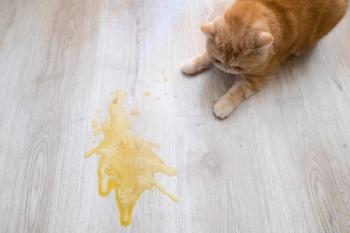
OSU opens forensics center
Stillwater, Okla. - The National Institute for Microbial Forensics and Food and Agricultural Biosecurity opened at Oklahoma State University, providing crime-scene investigation with an agricultural focus.
STILLWATER, OKLA. — The National Institute for Microbial Forensics and Food and Agricultural Biosecurity opened at Oklahoma State University, providing crime-scene investigation with an agricultural focus.
Its mission is to help identify contamination sources and those responsible for their release, in the event of outbreaks such as mad-cow disease, E. coli and anthrax.
"OSU is in a position to make a real contribution to the nation," says Jacqueline Fletcher, institute director and professor at OSU's Division of Agricultural Sciences and Natural Resources. "The institute will support national and regional biosecurity and law-enforcement communities, and help in identifying, prioritizing and addressing issues of crop and food biosecurity."
The center, first of its kind in the nation, offers expertise in plant pathology and forensic science, including microbiology and epidemiology.
Especially since 2001, the nation has been aware of the need to prepare for bioterrorism, says Robert Allen, chairman of the OSU Center for Health Sciences' department of forensic science.
"In the last couple of years, we have become more aware of the vulnerability of our systems to produce, process and deliver food, not only to our own population, but to the populations of the world that we feed," Allen says.
The institute aims to fulfill three state and federally mandated functions of a land-grant university: teaching, research and extension.
Training for first responders, Cooperative Extension personal or law-enforcement agents will be included in the teaching element; outreach through the state's Cooperative Extension Service will target farm communities.
One of the first focuses is applying the techniques used to characterize human DNA to identify sources of bacterial DNA impacting plants and crops. If successful, the process could be applied to any kind of pathogenic agent, Allen says.
"We're linked with the FBI scientific working group on microbial forensics, as well as other law-enforcement agencies at the national level," Fletcher says. "Within the state, we have a number of excellent resources with whom we'll partner, including OSU faculty, the University of Oklahoma's Advanced Center for Genome Technology, the Oklahoma Mesonet weather-monitoring system, the Forensic Science Institute at the University of Central Oklahoma and the National Memorial Institute for the Prevention of Terrorism in Oklahoma City."
After Sept. 11, the American Phytopathological Society president asked Fletcher to help the society determine its response to U.S. security needs. In that role, she worked with the Department of Agriculture, the Department of Homeland Security, Congress and began collaborating with Allen. A national-level workshop was held in January to identify priorities and projects needed to improve the nation's capabilities in plant-pathogen forensics, Fletcher says.
Newsletter
From exam room tips to practice management insights, get trusted veterinary news delivered straight to your inbox—subscribe to dvm360.




